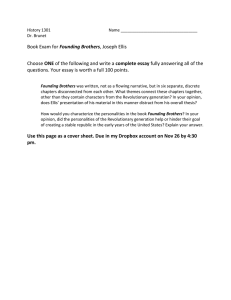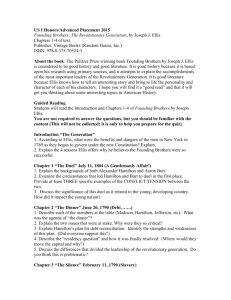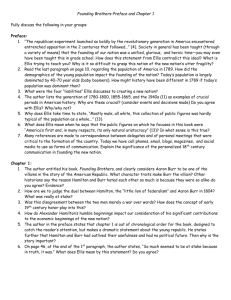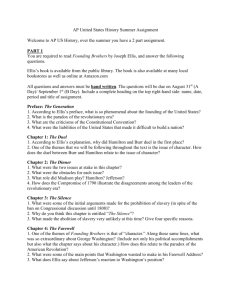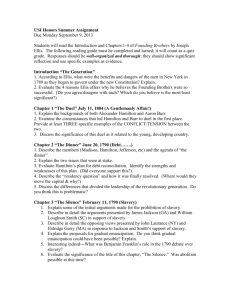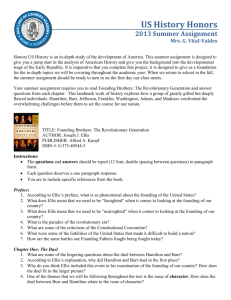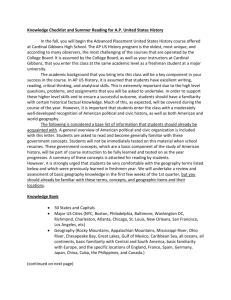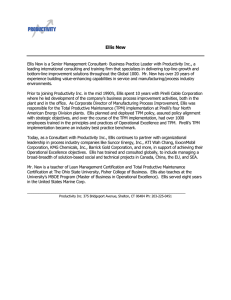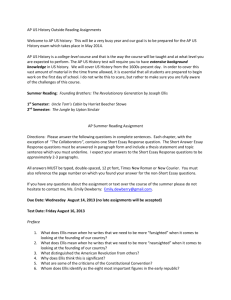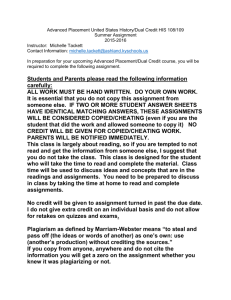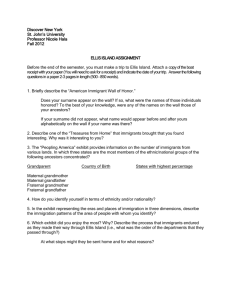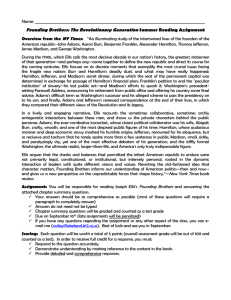Founding Brothers Study Questions: American Revolution
advertisement
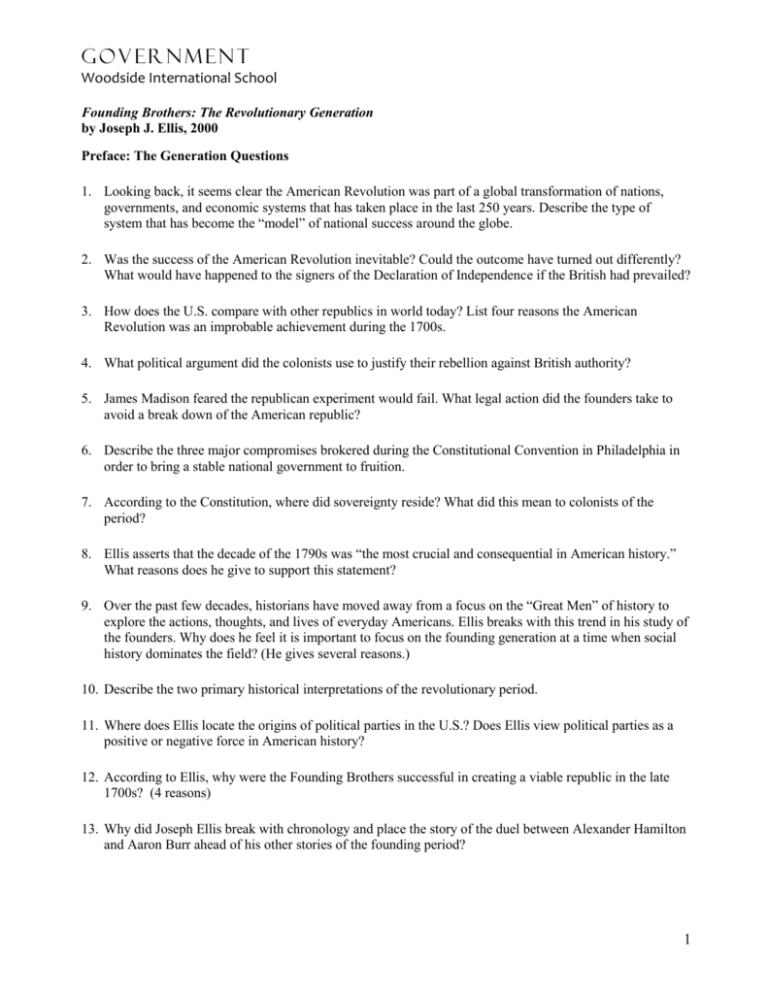
Government Woodside International School Founding Brothers: The Revolutionary Generation by Joseph J. Ellis, 2000 Preface: The Generation Questions 1. Looking back, it seems clear the American Revolution was part of a global transformation of nations, governments, and economic systems that has taken place in the last 250 years. Describe the type of system that has become the “model” of national success around the globe. 2. Was the success of the American Revolution inevitable? Could the outcome have turned out differently? What would have happened to the signers of the Declaration of Independence if the British had prevailed? 3. How does the U.S. compare with other republics in world today? List four reasons the American Revolution was an improbable achievement during the 1700s. 4. What political argument did the colonists use to justify their rebellion against British authority? 5. James Madison feared the republican experiment would fail. What legal action did the founders take to avoid a break down of the American republic? 6. Describe the three major compromises brokered during the Constitutional Convention in Philadelphia in order to bring a stable national government to fruition. 7. According to the Constitution, where did sovereignty reside? What did this mean to colonists of the period? 8. Ellis asserts that the decade of the 1790s was “the most crucial and consequential in American history.” What reasons does he give to support this statement? 9. Over the past few decades, historians have moved away from a focus on the “Great Men” of history to explore the actions, thoughts, and lives of everyday Americans. Ellis breaks with this trend in his study of the founders. Why does he feel it is important to focus on the founding generation at a time when social history dominates the field? (He gives several reasons.) 10. Describe the two primary historical interpretations of the revolutionary period. 11. Where does Ellis locate the origins of political parties in the U.S.? Does Ellis view political parties as a positive or negative force in American history? 12. According to Ellis, why were the Founding Brothers successful in creating a viable republic in the late 1700s? (4 reasons) 13. Why did Joseph Ellis break with chronology and place the story of the duel between Alexander Hamilton and Aaron Burr ahead of his other stories of the founding period? 1
